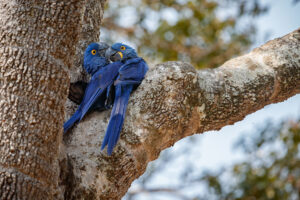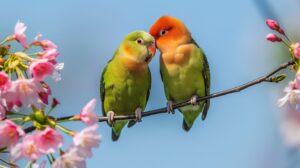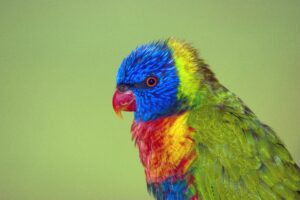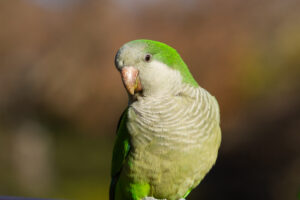Introduction: Understanding Your Macaw’s Nutritional Needs
As a proud macaw owner, one of the most important questions you need to answer is: what do macaws eat? These magnificent, colorful birds require a specific diet to maintain their vibrant plumage, energetic disposition, and overall health. In the wild, macaws have access to a diverse range of foods, but captive macaws depend entirely on their owners to provide proper nutrition.
In this comprehensive guide, we’ll explore everything you need to know about what do macaws eat, from their natural diet in the wild to the ideal feeding routine for your pet macaw. We’ll also share 5 powerful nutrition hacks that can dramatically improve your bird’s health, longevity, and happiness.
Whether you’re a new macaw owner or looking to optimize your longtime companion’s diet, this article will help you understand the nutritional requirements of these magnificent birds and how to meet them effectively.
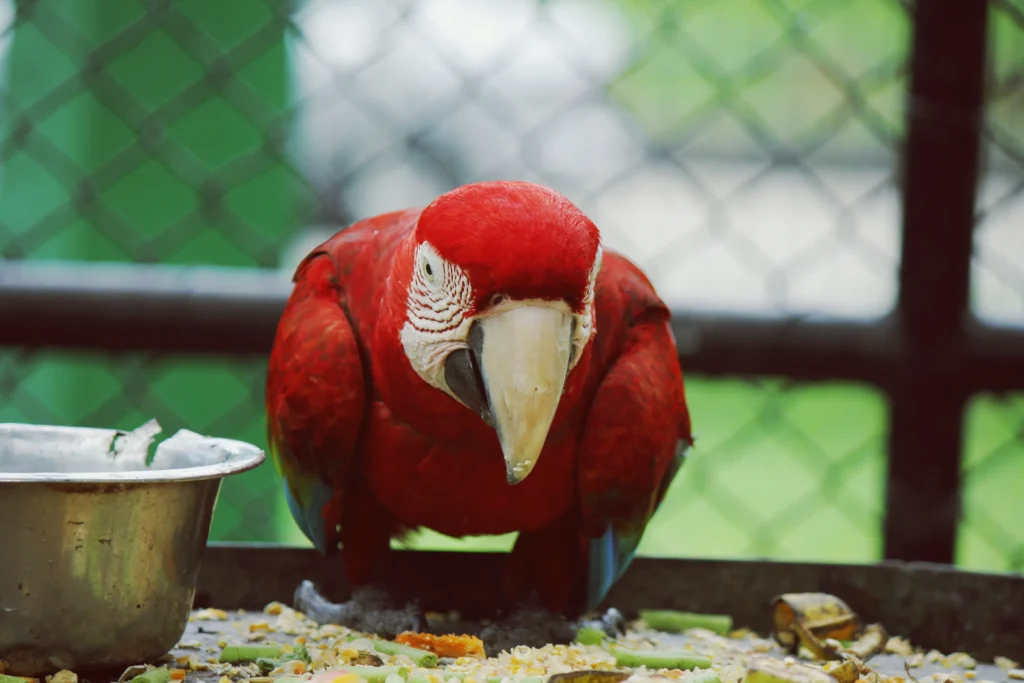
What Do Macaws Eat in the Wild?
To understand what makes the ideal macaw diet, we should first look at what these birds eat in their natural habitat. In the wild, macaws are native to the rainforests of Central and South America, where they have access to an abundant variety of foods. If you’re interested in learning more about macaws’ natural habitat, check out our complete guide to macaw species and their origins.
Wild macaws primarily consume:What Do Macaws Eat
- Native fruits: Wild macaws eat numerous tropical fruits rich in vitamins and natural sugars
- Nuts and seeds: These provide essential fats and proteins
- Flowers and nectar: Sources of natural sugars and micronutrients
- Leaf buds and vegetation: Offering fiber and additional vitamins
- Clay from riverbanks: Known as “geophagy,” this helps neutralize toxins from certain foods
Different macaw species may have slightly varied diets based on their specific habitat and available food sources. For example, when considering what do blue and gold macaws eat in the wild, they particularly favor palm nuts and fruits, while what do hyacinth macaws eat often includes specialized hard nuts like those from the acuri and bocaiuva palms, which their powerful beaks are perfectly adapted to crack.
Understanding this natural diet is crucial for replicating healthy nutrition for pet macaws. While we can’t exactly match their wild diet, we can use it as a blueprint for creating a nutritionally complete feeding plan.
What Do Macaws Eat
What Do Macaws Eat as Pets? Creating a Balanced Diet
When it comes to what do macaws eat in captivity, the goal is to provide a diet that mirrors their natural feeding habits while ensuring complete nutrition. A well-balanced macaw diet consists of several key components:
1. High-Quality Pellets: The Foundation
Premium commercial pellets should form about 50-60% of your macaw’s diet. These specially formulated foods are designed to provide balanced nutrition and come in varieties specifically made for large parrots like macaws. For a detailed comparison of the best pellet brands, see our macaw pellet food review guide.
Benefits of quality pellets:
- Consistent nutritional profile
- Fortified with essential vitamins and minerals
- Reduces the risk of nutritional deficiencies
- Available in formulations for different life stages
Look for pellets that don’t contain artificial colors, preservatives, or added sugars. Brands like Harrison’s, Roudybush, and ZuPreem are often recommended by avian veterinarians.
2. Fresh Fruits: Natural Vitamins and Hydration
When wondering what fruits can macaws eat, the answer is quite extensive. Fresh fruits should make up about 20-25% of your macaw’s diet. These provide essential vitamins, antioxidants, and natural sugars.
Safe fruits for macaws include:
What Do Macaws Eat
- Apples (without seeds)
- Bananas (yes, can macaws eat bananas? Absolutely!)
- Berries (strawberries, blueberries, raspberries)
- Mangoes
- Papayas
- Oranges and other citrus (in moderation)
- Melons
- Pineapple
- Grapes (and yes, can macaws eat grapes? They can, in moderation)
When feeding fruits, always remove any seeds or pits that may contain toxins, particularly apple, pear, and cherry seeds, which contain small amounts of cyanide compounds.
3. Vegetables: Essential Nutrients and Fiber
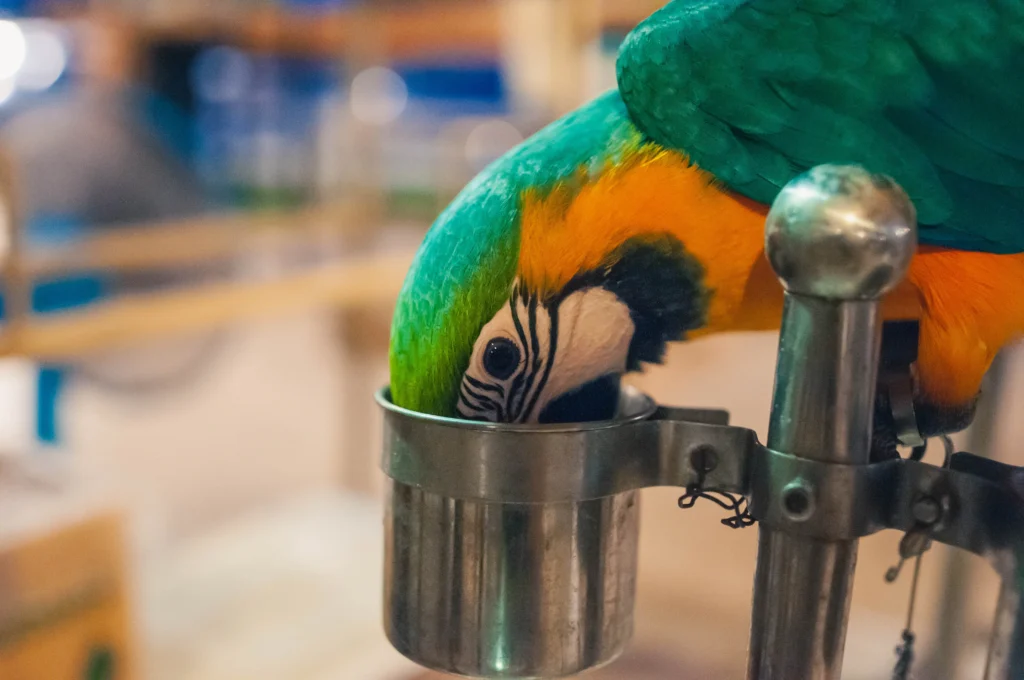
Vegetables should constitute another 20-25% of your macaw’s diet. When considering what vegetables can macaws eat, focus on those that are nutrient-dense and colorful.
Excellent vegetable choices include:
What Do Macaws Eat
- Leafy greens (kale, spinach, romaine lettuce, Swiss chard)
- Bell peppers (all colors)
- Carrots
- Broccoli and cauliflower
- Sweet potatoes (cooked)
- Squash
- Peas
- Green beans
Vegetables provide essential vitamins, minerals, and fiber that support your macaw’s digestive health and immune system. Always thoroughly wash vegetables to remove pesticides, and consider organic options when possible.
4. Nuts and Seeds: Protein and Healthy Fats
Nuts and seeds should make up about 10-15% of your macaw’s diet. These energy-dense foods provide essential fatty acids and proteins but should be limited due to their high fat content.
Nutritious nuts and seeds for macaws:
What Do Macaws Eat
- Almonds
- Walnuts
- Brazil nuts (especially loved by larger macaws)
- Hazelnuts
- Macadamia nuts
- Sunflower seeds (in moderation)
- Pumpkin seeds
- Chia seeds
- Flaxseeds
For macaws like the Hyacinth, what do hyacinth macaws eat should include more nuts than other species due to their specialized diet in the wild. However, all macaws enjoy and benefit from nuts when provided in appropriate amounts.
5. Proteins: Meeting Amino Acid Requirements
A question that often arises is do macaws eat meat? While macaws aren’t carnivores in the traditional sense, they do benefit from small amounts of protein. In captivity, this can include:
- Cooked eggs (excellent source of protein)
- Small amounts of cooked chicken (unseasoned)
- Legumes like cooked beans
- Small amounts of cottage cheese (if tolerated)
- What Do Macaws Eat
- What Do Macaws Eat
Protein should constitute about 5-10% of their diet. It’s essential for feather development, muscle maintenance, and overall health.
What Do Baby Macaws Eat? Nutrition for Growing Birds

The question of what do baby macaws eat requires special attention, as young birds have different nutritional needs than adults. Baby macaws in the wild receive regurgitated food from their parents, which gradually transitions from a liquid to a soft food consistency.
For hand-raised baby macaws:
- Commercial hand-feeding formula designed specifically for large parrots is essential
- These formulas must be prepared at the correct temperature and consistency
- Feeding schedules are rigorous, with young chicks requiring feeding every 2-3 hours
- As they grow, they gradually transition to softened pellets and soft fruits and vegetables
If you’re raising a baby macaw, consult with an avian veterinarian for specific guidance on hand-feeding techniques and schedules. Proper nutrition during this critical growth period sets the foundation for lifelong health.What Do Macaws Eat
Foods Toxic to Macaws: What to Avoid
Understanding foods toxic to macaws is just as important as knowing what they can eat. Some common household foods can be dangerous or even fatal to your bird. For a comprehensive list of all items that could harm your macaw, visit our complete guide to macaw toxins and hazards.
Never feed your macaw:
- Avocado (contains persin, toxic to birds)
- Chocolate (contains theobromine)
- Caffeine in any form
- Alcohol
- Onions and garlic
- Salty foods
- Foods high in fat or sugar
- Fruit seeds and pits (especially apple, pear, cherry)
- Rhubarb
- Raw beans
- Mushrooms
When considering safe foods for macaws, always research any new food before introducing it to your bird’s diet. What’s healthy for humans isn’t always safe for macaws.
What Do Macaws Eat
5 Powerful Nutrition Hacks for a Healthier Macaw
Now that we’ve covered the basics of what do macaws eat, here are five powerful nutrition hacks that can dramatically improve your bird’s health and wellbeing:
Hack #1: Strategic Food Rotation
Instead of offering the same foods day after day, implement a strategic rotation system. This ensures your macaw receives a wide spectrum of nutrients and prevents selective eating habits.
Implementation:
- Create a weekly food calendar
- Rotate between 3-4 different types of fruits and vegetables each day
- Change up protein sources throughout the week
- Use different varieties of the same food (e.g., different colored bell peppers)
This approach mimics the varied diet macaws would experience in the wild, where what do macaws eat changes with seasonal availability. Variety not only improves nutrition but also provides mental stimulation.
What Do Macaws Eat
Hack #2: Foraging Enrichment
In the wild, macaws spend up to 60% of their day foraging for food. Recreating this natural behavior is crucial for their mental health and can prevent behavioral issues. Learn more about preventing common behavioral problems in our macaw behavior troubleshooting guide.
Foraging techniques:
- Use puzzle feeders that require problem-solving to access food
- Hide small pieces of food in specially designed parrot toys
- Wrap small treats in unbleached paper for your macaw to unwrap
- Create DIY foraging toys using safe materials like cardboard tubes filled with treats
- Offer branches with nuts wedged into crevices
This approach transforms mealtime from a simple consumption activity into an engaging, mentally stimulating experience that better mirrors how what do macaws eat in the wild is actually obtained.
Hack #3: Sprout Power
Sprouting seeds and legumes multiplies their nutritional value, making them a superfood for macaws. The sprouting process increases vitamin content and makes nutrients more bioavailable.What Do Macaws Eat
How to implement:
- Use organic seeds suitable for sprouting (sunflower, pumpkin, mung beans, lentils)
- Rinse and soak seeds for 8-12 hours
- Drain and rinse twice daily until small sprouts appear (usually 2-3 days)
- Offer these living foods to your macaw as part of their regular diet
Sprouts are an excellent addition to any macaw feeding guide, providing living nutrition that’s packed with enzymes and vitamins.What Do Macaws Eat
Hack #4: Herbal Nutrition Boosts
Certain herbs can provide additional nutritional benefits and support your macaw’s overall health. These can be sprinkled in small amounts over regular food.What Do Macaws Eat
Beneficial herbs for macaws:
- Dandelion leaves (rich in vitamins A and K)
- Cilantro (natural detoxifier)
- Parsley (vitamin C boost)
- Basil (antibacterial properties)
- Mint (aids digestion)
- Chamomile (calming effects)
Always introduce herbs gradually and in small amounts to ensure your macaw tolerates them well. This is an excellent way to enhance a healthy macaw diet with minimal effort.What Do Macaws Eat
Hack #5: Scheduled Fasting
This might sound counterintuitive, but occasional light fasting can benefit your macaw’s digestive system. In the wild, macaws don’t have constant access to food and their bodies are adapted to periods of lesser food intake.What Do Macaws Eat
How to implement:
- One day per week, reduce food quantity by about 30%
- Ensure fresh water is always available
- Continue to provide mental stimulation during these periods
- Never fast a bird that is underweight, ill, or stressed
- What Do Macaws Eat
This practice can help prevent obesity, improve digestion, and may contribute to longevity. However, consult with an avian veterinarian before implementing any fasting regimen in your macaw feeding guide.
Specialized Diets for Different Macaw Species
While the general principles of what macaws eat apply across species, there are some notable differences worth considering:
What Do Blue and Gold Macaws Eat?
What do blue and gold macaws eat should include a good balance of all food groups, with special attention to colorful fruits and vegetables that help maintain their vibrant plumage. These popular pet macaws thrive on:
- A variety of tropical fruits like papaya, mango, and banana
- Nuts like Brazil nuts and walnuts (in moderation)
- Orange vegetables like carrots and sweet potatoes
- Quality pellets formulated for large macaws
What Do Green Wing Macaws Eat?
When considering what do green wing macaws eat, these large birds have particularly strong beaks and enjoy:
- Hard nuts like Brazil nuts and macadamias
- Fibrous vegetables like broccoli and carrots
- Palm fruits when available
- Slightly higher protein content compared to some other species
What Do Hyacinth Macaws Eat?
What do hyacinth macaws eat is quite specialized. As the largest parrots in the world, these magnificent blue birds have evolved to consume particularly hard nuts in the wild:
- Palm nuts, especially from the acuri and bocaiuva palms
- Higher percentage of nuts in their diet compared to other macaws
- Brazil nuts are particularly important for captive hyacinths
- Special attention to calcium and vitamin A supplementation
Homemade Macaw Food: DIY Nutrition
Many dedicated owners create homemade macaw food to ensure quality and freshness. Here are some ideas for healthy homemade options:
Nutrient-Rich Chop Recipe
This versatile “chop” can be prepared in large batches and frozen in portions:
Ingredients:
- 1 bunch kale, finely chopped
- 1 red bell pepper, diced
- 1 carrot, grated
- ½ cup cooked quinoa
- ¼ cup sprouted seeds
- 1 apple, diced (no seeds)
- ¼ cup blueberries
- 1 tablespoon ground flaxseed
- Small handful of chopped herbs (parsley, cilantro)
Preparation:
- Thoroughly wash all produce
- Finely chop all ingredients to an appropriate size
- Mix ingredients together
- Portion into ice cube trays or small containers
- Freeze and thaw as needed
This nutritious mix provides a balanced blend of what macaws eat in a convenient format. It can be adjusted based on your bird’s preferences and needs.
Healthy Treat Balls
These special treats are perfect for training or occasional rewards:
Ingredients:
- 2 tablespoons natural nut butter (no salt, sugar, or additives)
- 1 tablespoon honey (optional, but safe for adult macaws)
- ¼ cup finely chopped dried fruits (no sulfites)
- ¼ cup ground nuts
- 2 tablespoons ground pellets
Preparation:
- Mix nut butter and honey
- Add remaining ingredients and form into small balls
- Refrigerate to firm up
- Offer occasionally as special treats
Remember that homemade macaw food should complement, not replace, a balanced diet that includes quality pellets.
Daily Diet for Macaws: Creating a Routine
Establishing a consistent daily diet for macaws helps maintain digestive health and ensures proper nutrition. Here’s a sample feeding schedule:
Morning:
- Fresh water (changed daily)
- Pellets (available throughout the day)
- Fresh vegetables and leafy greens
Midday:
- Fresh fruits
- Small portion of nuts or seeds
Evening:
- Additional vegetables
- Small protein portion (if included in daily plan)
- Remove any uneaten fresh foods before night
This schedule mimics the natural feeding patterns of wild macaws, where most foraging occurs in the morning and late afternoon. Consistency in timing helps establish healthy eating habits and digestive routines.
Feeding Macaws in Captivity: Best Practices
Successful feeding macaws in captivity involves more than just providing the right foods. How you present meals can significantly impact your bird’s health and behavior:
Food Presentation Techniques
- Serve foods at room temperature
- Cut pieces appropriate to your macaw’s size
- Use stainless steel or ceramic dishes (avoid plastic)
- Position food dishes to minimize contamination
- Provide separate dishes for wet and dry foods
- Change food and water at consistent times daily
Monitoring Food Consumption
Keep track of what your macaw eats to ensure they’re receiving balanced nutrition:
- Note which foods are consistently left uneaten
- Watch for changes in appetite, which may indicate health issues
- Weigh your bird regularly (every 1-2 weeks) to ensure proper weight
- Adjust portions based on activity level and season
Transitioning to New Foods
If you’re improving your macaw’s diet from a seed-based or unbalanced diet, patience is essential:
- Introduce new foods alongside familiar ones
- Try offering new foods in the morning when birds are hungriest
- Eat the new food yourself in front of your bird (macaws are social eaters)
- Try different presentations and temperatures
- Be persistent – it may take 10-15 exposures before a macaw accepts a new food
Best Food for Pet Macaw: Quality Matters
When selecting the best food for pet macaw, quality should be your primary consideration. Here’s what to look for:
Pellet Selection
- Choose pellets specifically formulated for large parrots
- Look for natural ingredients without artificial colors or preservatives
- Select brands that specify research-based formulations
- Consider organic options when available
Produce Quality
- Wash all fruits and vegetables thoroughly
- Choose organic when possible, especially for thin-skinned fruits
- Use fresh produce at peak ripeness
- Rotate seasonal fruits and vegetables
Nut and Seed Quality
- Purchase human-grade nuts without salt or additives
- Store nuts and seeds in the refrigerator to prevent rancidity
- Consider nuts in shells for mental stimulation (when appropriate)
Remember that what macaws eat should always be fresh and high-quality. The extra cost of premium foods is an investment in your bird’s health that can reduce veterinary expenses in the long run.
Conclusion: The Path to Optimal Macaw Nutrition
Understanding what do macaws eat is fundamental to raising a healthy, vibrant, and long-lived companion. By providing a diet that mirrors their natural nutritional intake while accounting for the specific needs of captivity, you can significantly enhance your macaw’s quality of life.
Remember these key points:
- A proper macaw diet includes quality pellets, fresh fruits, vegetables, limited nuts, and occasional protein
- Different species have slightly different needs
- What macaws eat in the wild provides our blueprint for captive nutrition
- Variety, quality, and proper presentation are essential
- Avoid toxic foods and monitor consumption
By implementing the five nutrition hacks we’ve shared and following a comprehensive macaw feeding guide, you’ll provide your feathered friend with the foundation for optimal health, beautiful plumage, and a vibrant personality.
Want to learn more about proper care for your macaw? Explore our other in-depth guides on macaw housing requirements, behavioral enrichment, and health monitoring here at PetsPump.
FAQs About Macaw Diets
What do macaws eat on a daily basis?
Macaws should eat a daily diet consisting of approximately 50-60% high-quality pellets, 20-25% fresh vegetables, 15-20% fresh fruits, and 5-10% nuts, seeds, and occasional protein sources like cooked egg.
Can macaws eat bananas?
Yes, macaws can eat bananas. They are actually a favorite fruit for many macaws and provide good nutrition including potassium and vitamin B6. The peel should be removed, and bananas should be offered as part of a varied fruit selection.
Can macaws eat grapes?
Yes, macaws can eat grapes, but they should be offered in moderation due to their sugar content. Always wash grapes thoroughly and consider cutting them in half for easier consumption. Red and purple grapes provide more antioxidants than green varieties.
Do macaws eat meat?
While macaws aren’t carnivores, they can consume small amounts of cooked lean meat occasionally. In the wild, they might opportunistically eat insects or small amounts of protein. Cooked chicken (unseasoned) or scrambled eggs are appropriate protein sources for pet macaws.
What fruits can macaws eat?
Macaws can eat a wide variety of fruits including apples (no seeds), bananas, berries, mango, papaya, pineapple, melons, grapes, and oranges. Fruits should make up about 20% of their diet and should be washed thoroughly before serving.
What vegetables can macaws eat?
Safe vegetables for macaws include leafy greens (kale, spinach, romaine), bell peppers, carrots, broccoli, cauliflower, sweet potatoes (cooked), squash, and green beans. These should constitute about 20-25% of their diet.
How often should I feed my macaw?
Macaws should have fresh food offered twice daily, typically in the morning and evening. Pellets can remain available throughout the day, while fresh foods should be removed after 2-4 hours to prevent spoilage.
What do baby macaws eat?
Baby macaws require specialized hand-feeding formula designed for large parrots. As they grow, they gradually transition to softened pellets and soft fruits and vegetables. Hand-feeding should only be done by experienced individuals following veterinary guidance.
Are there foods toxic to macaws?
Yes, foods toxic to macaws include avocado, chocolate, caffeine, alcohol, onions, garlic, salty foods, high-fat foods, fruit seeds/pits (especially apple), rhubarb, raw beans, and mushrooms. Always research new foods before offering them to your bird.
What do blue and gold macaws eat?
Blue and gold macaws eat a diet similar to other macaw species, focusing on quality pellets, fresh fruits and vegetables, and limited nuts and seeds. They particularly enjoy tropical fruits like papaya, mango, and bananas.
What do hyacinth macaws eat?
Hyacinth macaws have specialized dietary needs, requiring a higher percentage of nuts, particularly Brazil nuts and macadamias. Their powerful beaks have evolved to crack extremely hard palm nuts in the wild, and this should be reflected in their captive diet.
What do green wing macaws eat?
Green wing macaws eat a diet similar to other large macaws but may benefit from slightly higher protein content. They have very strong beaks capable of cracking hard nuts and enjoy fibrous vegetables and tropical fruits.
What is the best food for pet macaw?
The best food for pet macaws is a balanced diet of high-quality pellets formulated for large parrots, supplemented with fresh organic fruits and vegetables, limited nuts and seeds, and occasional protein sources. Quality and variety are key considerations.
How can I transition my macaw to a healthier diet?
Transition your macaw gradually by introducing new foods alongside familiar ones, offering new foods when they’re hungriest, eating the new foods yourself in their presence, and being persistent. It may take multiple attempts before they accept new foods.
Can I make homemade macaw food?
Yes, homemade macaw food can be an excellent addition to their diet. Prepare vegetable and fruit “chop” mixes that can be frozen in portions, or create healthy treat balls for training. Homemade food should complement, not replace, quality pellets.
macaw housing requirements, behavioral enrichment, and health monitoring here at PetsPump



